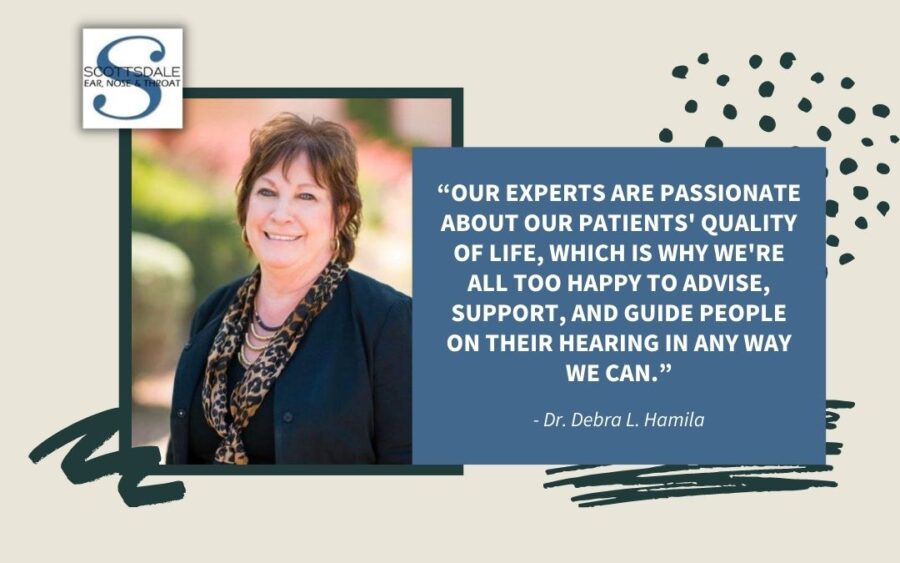We all hear that hearing loss becomes more common as we get older. Some of us choose to ignore the signs because we feel that it is a natural part of aging, and there is nothing we can do about it. However, that isn’t the whole case. Late treatment of hearing loss can be detrimental to your hearing health.
Do you see the signs?
Do you have trouble following along in conversations over the phone? Do you find it challenging to follow conversations in relatively noisy environments? Does it sound like people are mumbling more often? These may be signs that you are experiencing hearing loss, and while it might be embarrassing to admit, it is time for you to get a hearing exam. The sooner you get checked and helped, the better your overall situation will be.
What are the consequences?
Safety
Your hearing is an integral part of your life, and often you hear things before you see them. Your ability to hear protects you from danger. Losing your hearing makes you vulnerable and more prone to accidents. Imagine crossing the street and not hearing the car coming your way. While we would love to believe that we would see the car before then, sometimes obstructions mean that we don’t. Your hearing acts as a warning mechanism and one of your most vital senses. It gives attention to sounds that may potentially harm you and averts you from that potential danger. Without your hearing, you lose an essential system that is crucial to your longevity and survival.
Social Engagement
Losing your hearing can make following conversations more difficult and challenging, even to the point that they can be considered frustrating. Hearing loss can quickly make you isolated from society. And while we’d dislike to admit it, having a conversation with someone that is always asking you to repeat what you said is frustrating as well. Your inability to hear could lead to people giving up on interacting with you because they feel it is too taxing or stressful.
Society heavily relies on the ability of individuals to hear so that we can share relevant information. Crucial pieces of information are sometimes only passed by word of mouth. Hearing loss interferes with your ability to gather information that could be important to you. For instance, information that pertains to a particular neighborhood wouldn’t appear in the newspaper or on television. Instead, it would be passed down from neighbor to neighbor through word of mouth, meaning the ability to hear and socialize is very important. Being uninformed leads to inconveniences and misunderstandings.
Mood
As we stated earlier, losing your ability to hear can be very frustrating. Isolation and frustration can have profoundly adverse effects on your mental health and mood. People with long term and untreated hearing loss are more likely to be in a “bad mood” often. Inconveniences and misunderstandings lead to many negative emotions, such as embarrassment and stress. Depression is also commonly linked to hearing loss.
Mental Health
Your brain has a lot to process. As you begin to experience hearing loss, it uses more energy to try to comprehend and interpret all the information your ear is missing. This means that your brain has less energy to perform other tasks.
Memory can start to slip because of a decrease in brain energy and functionality. As your brain will be focused on understanding what your faulty ears are hearing, details can easily slip and fail to be comprehended correctly. In addition to memory, general cognitive functions also experience a distinct decrease. Hearing loss has also been linked to the development of dementia.
Ear Health
Hearing loss is stemmed from the ear itself. It may be caused by an under-use of a portion of the ear. Without examination and treatment, the situation will not get any better. The body will adapt to not using that portion of the ear, causing the severity of your hearing loss to deteriorate. Hearing technology such as hearing aids allows for the underused portion of the ear to function as normal, preventing the situation from worsening. Hearing loss may also be caused by damage to a part of the ear. Examinations allow for the cause of the injury to be identified and prevented from worsening.
Physical Health
When mental health falls, it becomes difficult to feel like doing anything. If your mental health becomes very low, you may experience a lack of motivation to maintain good physical health and proper hygiene.
Do you understand the importance now?
These consequences are not separate. They all occur concurrently and deteriorate your body’s overall physical and mental health. People with hearing loss find it hard to motivate themselves to do everyday things that they would usually do, such as work or exercise. If you are experiencing any signs of hearing loss, it is a good idea to get your hearing checked. People over 50 should regularly get their hearing tested to identify hearing loss sooner rather than later. Schedule an appointment with us and see how we can help.




